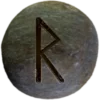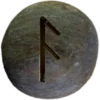Last Updated on December 11, 2024
Table of Contents


The Goðar (GOH-thar; singular Goði, pronounced GOH-thee) are spiritual leaders and ritual guides in Asatru (pronounced AH-sah-troo). The term Goðar derives from Old Norse and translates to “priests” or “chieftains.” Historically, they were both religious and secular leaders in Norse communities, blending governance with spiritual duties. Their influence extended beyond temple rituals, shaping lawmaking and acting as mediators in disputes.
In modern Asatru practice, Goðar fulfill roles similar to clergy. They guide kindreds—groups of Asatru practitioners—through ceremonies, seasonal blóts (BLOHTS, sacrifices or offerings), and sumbels (SOOM-bels, ritual toasts). Their responsibilities include teaching Asatru principles, facilitating community connections, and honoring the gods, ancestors, and spirits of the land. They often tailor ceremonies to reflect both traditional practices and the needs of their kindred.
To become a Goði or Gyðja (GYTH-yah; female Goðar), one typically undergoes rigorous study. This includes learning about the Eddas, Sagas, and ancient customs. They also develop skills in public speaking, mediation, and organizing events. Modern Goðar may earn their positions through ordination by organizations like the Asatru Folk Assembly or by gaining recognition from their local kindred.
The Goðar have been mentioned extensively in historical texts, including the Landnámabók (The Book of Settlements) and the Icelandic Sagas. These records illustrate their dual roles as spiritual authorities and protectors of the law. Today, Asatru practitioners honor this legacy by valuing their Goðar as stewards of tradition and community.
Two Elder Futhark Runes Associated with Goðar
The Ansuz rune (ᚨ) represents divine inspiration and communication. It reflects the Goðar’s role as intermediaries between mortals and deities. The Raido rune (ᚱ), associated with journeys and leadership, symbolizes the Goðar’s guidance of their kindreds through spiritual growth and shared rituals. ![]()
Importance to Asatruar
Goðar are essential to Asatru communities, serving as spiritual leaders and cultural educators. They guide kindreds in honoring the gods, maintaining traditions, and fostering community bonds. Their dedication ensures Asatru remains vibrant and rooted in its ancestral values. Without the them, the preservation and evolution of Asatru practices would face significant challenges.

